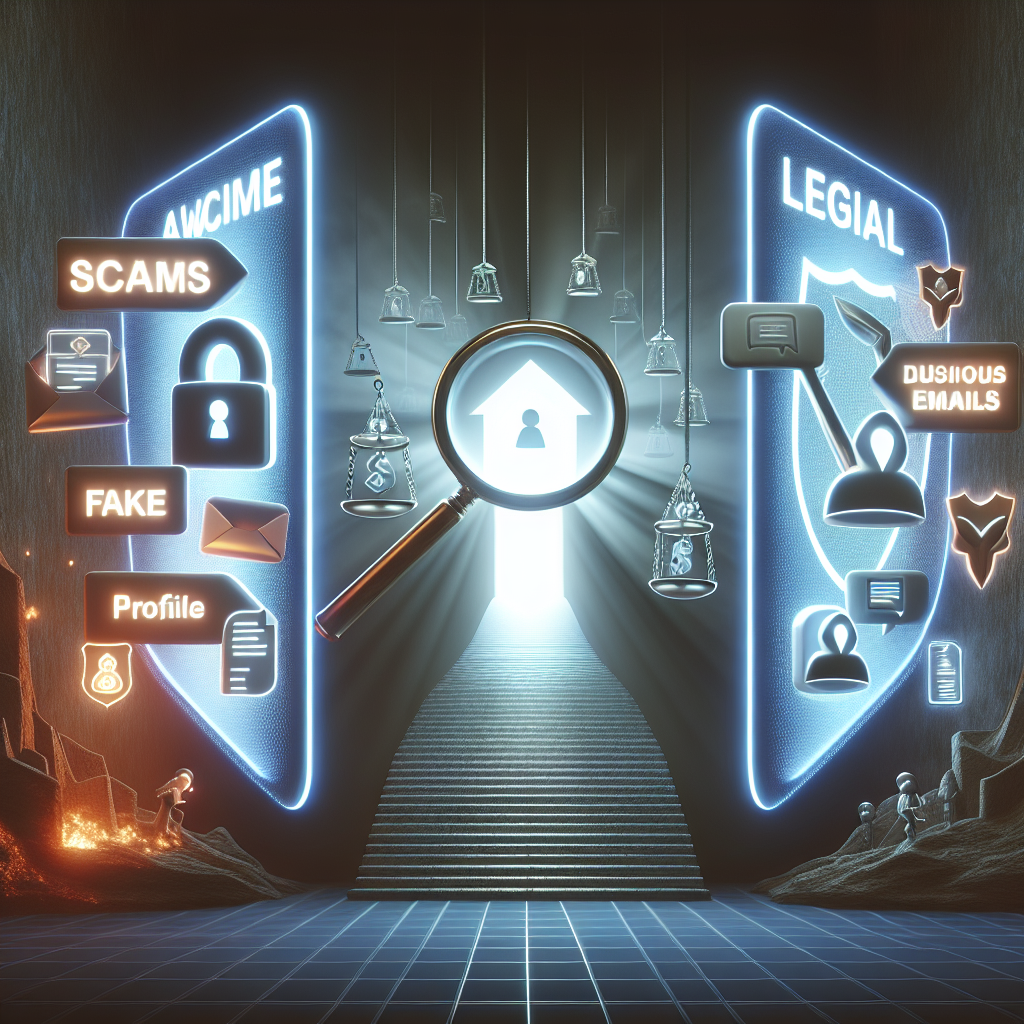
In today’s digital age, navigating the online world can feel like navigating a minefield of scams. From phishing schemes to fraudulent investment opportunities, the internet is riddled with deceit. Let’s delve into the realm where deception meets justice: Beyond the Screen, with a focus on legal actions and raising awareness against online scams.
Contents
The Surge in Online Scams
The internet, while a boon for connectivity, has become a breeding ground for scams. The Fraud Resource Center reports a significant rise in online scams in recent years. This uptick isn’t just a nuisance. It poses real threats to financial security and personal data.
Common Types of Scams
- Phishing: Pretending to be trustworthy entities to steal sensitive information.
- Investment Scams: Offering fake investment opportunities promising high returns.
- Tech Support Frauds: Convincing victims of non-existent computer issues for profit.
- Online Marketplaces Frauds: Selling non-existent items or misrepresenting products.
Legal Measures Against Scams
Here’s where the law steps in. Legal actions play a crucial role in curbing these digital deceptions.
International Efforts
Globally, countries collaborate to tackle online scams. The Organisation for Economic Co-operation and Development (OECD) has been pivotal. They push for international guidelines on consumer protection.
National Legislation
The U.S. has enacted laws like the Computer Fraud and Abuse Act (CFAA). This act criminalizes unauthorized access to computers and data theft. Across the pond, the UK’s Fraud Act 2006 covers a wide range of fraudulent activities.
Regulatory Bodies
Regulatory agencies, like the Federal Trade Commission (FTC) and the Securities and Exchange Commission (SEC), actively pursue scammers. They enforce penalties and push for awareness programs.
| Measure | Description | Example |
|---|---|---|
| CFAA | U.S. law against unauthorized computer access. | Data Breaches |
| Fraud Act 2006 | UK law addressing fraudulent activities. | Misrepresentation in Transactions |
| FTC | Enforces consumer protection laws in the United States. | Telemarketing Scams |
| SEC | Regulates securities industry and penalizes fraudulent investment schemes. | Ponzi Schemes |
| OECD Guidelines | Promotes international cooperation in consumer protection. | Cross-Border Scams |
Awareness: A Key Component
Sure, laws are essential, but awareness is the first line of defense. Educating the public about potential scams lowers the chances of falling victim to them.
Awareness Campaigns
- Public Service Announcements: TV and radio spots informing the public about common fraud tactics.
- Workshops and Webinars: Sessions helping individuals recognize and report scams.
- Social Media Outreach: Platforms like Facebook and Twitter are vital for spreading quick alerts.
Educational Institutions
Schools and universities play an important part. Integrating cyber-safety in the curriculum ensures the next generation stays informed.
Corporate Initiatives
Corporations are increasingly proactive, too. Tech giants like Google and Microsoft run awareness campaigns about digital safety. They provide tools to detect phishing attempts and other scams.
Recent Developments
Staying up-to-date on recent developments is crucial. Check out Investment Shoax for the latest on combating online fraud and understanding digital deception.
Legal Wins
Recently, a New York district court successfully prosecuted a group involved in a widespread phishing scam. This landmark case set new precedents and encouraged global cooperation in legal pursuits.
Partnerships
Public-private partnerships are on the rise. The Cybersecurity and Infrastructure Security Agency (CISA) works with tech companies to develop robust cyber defenses.
In-Depth Questions
1. How do regulatory bodies track online scammers?
Tracking online scammers is like participating in a high-stakes chess game. Regulatory bodies use advanced technology and data monitoring to identify suspicious activities. They collaborate with internet service providers to trace scam origins. Moreover, they team up with international organizations to tackle cross-border scams. With cyber forensics, agencies analyze digital footprints, making it harder for scammers to hide.
Collaboration is key. Multi-agency task forces are becoming common, combining resources and expertise. Public tips are vital too. Encouraging reports from the public helps regulators stay a step ahead.
2. What challenges do international efforts face in fighting online scams?
International efforts face numerous hurdles. Different jurisdictions have varying laws and enforcement capabilities. This disparity complicates efforts to coordinate actions and share information globally. Additionally, language barriers and cultural differences impede seamless communication.
Another significant challenge is the anonymity the internet provides. Scammers often operate in regions with lax regulations, making arrests difficult. To overcome these obstacles, international treaties and alliances are essential. By establishing global standards and regular dialogue, international efforts can become more effective.
3. How can individuals protect themselves from online scams?
Individuals are the first line of defense. Always verify sources by checking URLs for authenticity. Don’t click on suspicious links or download unsolicited attachments. Invest in good antivirus software and keep systems updated. This step can prevent malware from causing harm. Regularly monitoring bank statements helps catch fraudulent transactions early. Enable two-factor authentication for online accounts. This adds an additional layer of security against unauthorized access.
Education is a powerful tool. Staying informed about the latest scam tactics keeps individuals prepared. Finally, trust your instincts. If something seems too good to be true, it probably is.
Conclusion
Beyond the screen, the internet teems with danger. Yet, legal actions and awareness work hand in hand to create a safer digital landscape. By staying informed and vigilant, you can outsmart those lurking in the shadows of the web. As we fight this battle together, one thing’s clear: knowledge and collective action are our best weapons.






